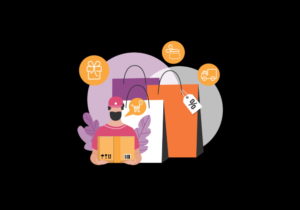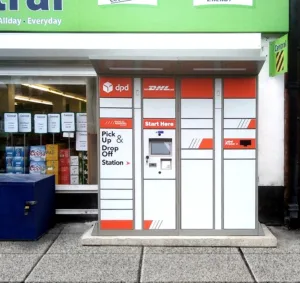By Patrick Tame CEO of Beringer Tame
2022 will be a record year for people moving jobs in ecommerce as inflation bites and the Covid 19 emergency passes
In 2021, we saw an increase in demand for ecommerce and digital jobs. However, we also saw a decrease in the supply of talent – people just weren’t really looking to move jobs in 2021. However, the milder Omicron variant will likely usher in an end to the Covid emergency in 2022 and employees will begin to have increased confidence in the stability of the market. Inflation will also bite leaving people to seek out higher wage packets. Smart bosses will already have started to think about how to retain their best people in 2022 and are ahead of the game.
2022 will be the year of wage inflation for Ecommerce and Digital Marketing jobs.
Perhaps not a difficult one to predict – we already have wage inflation resulting from increased demand, but inflation will compound this. The higher wage cost for experienced staff will be good news for graduates and we can expect to see more jobs open to them along with in house training.
In 2022, UK brands will have a renewed focus on international growth.
Local domestic players are catching up, but the UK is still something or a world leader in Ecommerce. Brands selling cross border are generally seeing good growth from international markets, the post-Brexit landscape presents challenges but also opportunities, expect to see more global growth for UK ecommerce as firms exploit the opportunities outside of the EU.
Supply chains will de-risked – China will lose out.
2022 will continue to be dogged by continued disruption to supply chains and boards will look to de-risk them in future. We will see a small but definite trend away from complex supply chains with some manufacture returning to the UK in some areas.
In 2022, we will see more ‘Ethical Purchasing’ – China will lose out.
Greater scrutiny of the way countries are run, particularly with regards to human rights and carbon emissions, will begin to influence consumer buying behaviour more than it does now. In reality, price will be the main consideration for the vast majority of people, particularly in light of rising inflation, but this issue will attract increasing attention in the media. China will be the main target, particularly if there is a military confrontation in the south china sea or more evidence emerges that Covid-19 was released from a lab – something that was widely seen as a conspiracy theory a year ago but is now beginning to gain traction.
The travel industry will take a larger share of our wallets in 2022, at the cost of retail, but there will be a large shortage of talent.
It’s not difficult to predict that people will travel more in 2022 but what is interesting is how hard it will be for those travel companies to hire the impact it will have on consumer goods retail as wage packets are diverted away from ‘stuff’.
There will be some major M&A activity in tech (Meta will buy an ecommerce tech firm)
Okay, so there’s always major M&A activity in tech but there will be some big ones in 2022. I predict Meta (or whatever Facebook is calling themselves this week) will buy a major ecommerce platform provider to help get more traction for social commerce. That’s quite a specific prediction but if I get this one right, I get good bragging rights.
Mainstream retailers will start to accept cryptocurrency online:
We will see cryptocurrency as a payment option with more ecommerce brands and retailers in 2022 and an increasing number of people will begin to invest into cryptocurrency as it becomes more accessible and ‘normalised’.
There will be more tension with the EU driving UK brands to have a more global outlook:
Compared to the domestic economies within the EU states, the UK is emerging from the chaos of the past two years with something of an economic spring in its step. This will continue in 2022 and the relative success of the UK will cause tension between the EU and the UK, most notably with France. Trade with the EU will carry on as it is but UK brands will increasingly seek opportunities outside of Europe.
It will be a very good year for young people:
High levels of employment, rising wages an ageing population and increasing demand is good news for people at the beginning of their career. Employers will be forced to up their game to staff their businesses, offering more flexibility and working harder to attract and retain good people.
Overall, we’re optimistic for 2022. Everything that can go wrong, has gone wrong (barring the outbreak of a major war in the Ukraine or Taiwan, which hasn’t made it into my 2022 predictions!), the UK has proved itself to be extraordinarily robust. In the worlds of Brian Cox, things can only get better.







